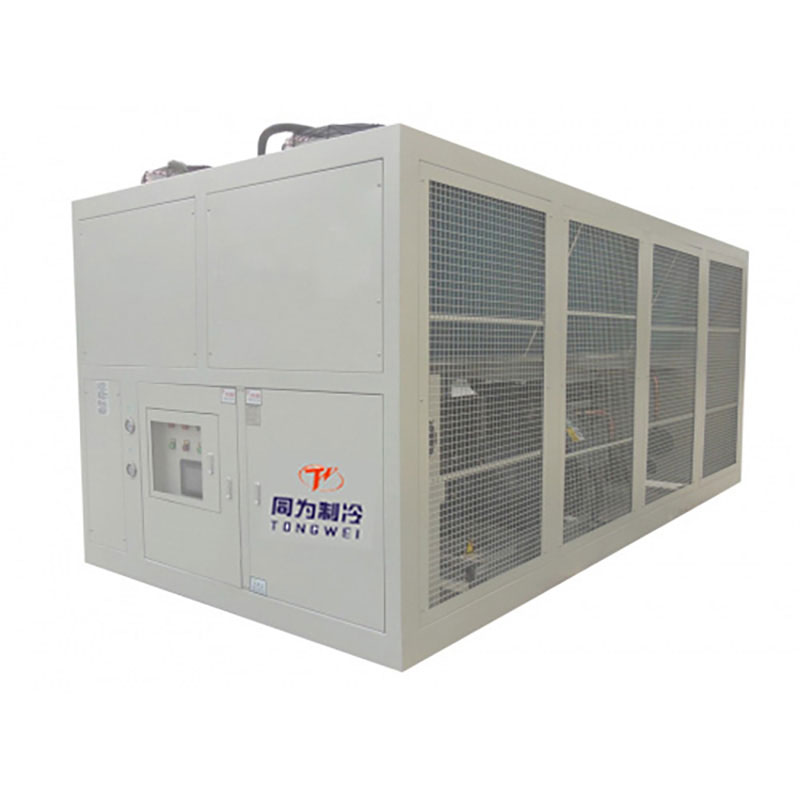Features and Benefits of Air Cooled Screw Chiller
2024-07-17
An air-cooled screw chiller is a type of industrial cooling system that uses air as the cooling medium to remove heat from a process or space. It's commonly used in large commercial and industrial applications where water availability or quality is limited, or where it's more practical to use air for cooling. Here’s an overview of an air-cooled screw chiller:
Components and Operation:
1. Compressor:
- The heart of the chiller, typically a screw compressor. Screw compressors are known for their efficiency and ability to handle large cooling loads consistently.
- They operate by compressing refrigerant gas to a high pressure and temperature.
2. Condenser:
- The condenser transfers heat from the refrigerant gas to ambient air.
- Air-cooled condensers have coils and fins that facilitate heat transfer, and fans that blow ambient air over the coils to cool the refrigerant.
3. Evaporator:
- The evaporator absorbs heat from the process or space being cooled, typically through a refrigerant-to-fluid heat exchanger.
- As the refrigerant evaporates, it absorbs heat and cools the chilled water or other cooling medium.
4. Expansion Valve:
- Controls the flow of refrigerant into the evaporator, regulating the temperature and pressure of the refrigerant entering the evaporator coil.
5. Fans:
- Air-cooled screw chillers have fans that draw ambient air over the condenser coils to facilitate heat exchange and cooling.
- The fans can be variable speed to optimize energy efficiency and adapt to varying cooling loads.
Features and Benefits:
- No Water Usage: Unlike water-cooled chillers that require a constant water supply and cooling tower, air-cooled screw chillers do not consume water for cooling, making them suitable for locations where water conservation is a concern or where water quality is poor.
- Ease of Installation: Air-cooled chillers are generally easier to install and require less infrastructure compared to water-cooled systems, which need water supply lines, cooling towers, and associated piping.
- Lower Maintenance Costs: They typically have lower maintenance costs since there is no need for water treatment, cooling tower maintenance, or associated pump systems.
- Flexibility: Air-cooled chillers can be installed outdoors or on rooftops, saving indoor space and allowing for easier expansion if cooling capacity needs increase.
Applications:
- Commercial Buildings: Used in office buildings, hotels, shopping malls, and other large facilities for air conditioning and comfort cooling.
- Industrial Processes: Applied in manufacturing plants, food processing facilities, data centers, and hospitals where precise temperature control is critical for equipment and product stability.
- HVAC Systems: Provide cooling for large-scale HVAC systems, ensuring comfort and indoor air quality in buildings.
Efficiency Considerations:
- Energy Efficiency: Manufacturers often design air-cooled screw chillers with features such as variable-speed compressors and fans to optimize energy usage and improve efficiency across varying load conditions.
- Environmental Impact: While air-cooled chillers do not use water directly, they consume electricity. Choosing energy-efficient models and maintaining them properly can reduce overall environmental impact.
Air-cooled screw chillers offer a robust and efficient cooling solution for a wide range of applications, providing reliable temperature control without the need for water resources typically required by water-cooled systems.



